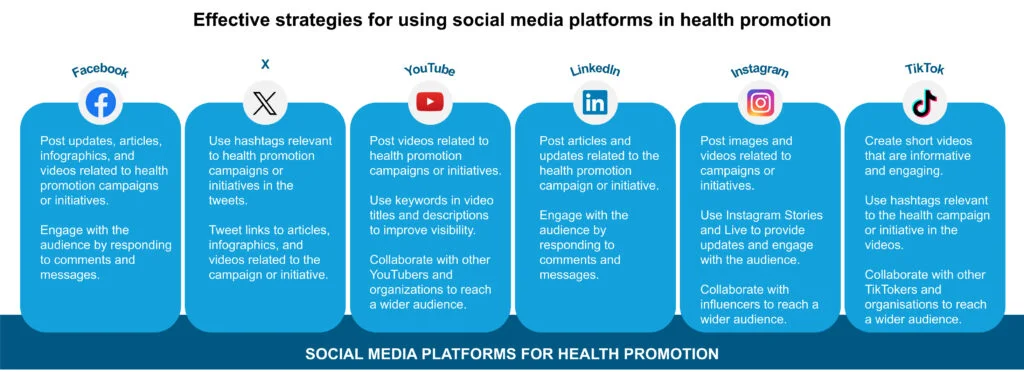Enhancing medication adherence for cardiovascular health via social media
- Cardiovascular diseases remain a significant cause of mortality globally, with around 80% of the deaths occurring in low- and middle-income countries1.
- Patient outcome in cardiovascular disease is negatively affected by non-adherence to prescribed medication. A mere 57% of patients adhere to these recommended treatment plans2.
- Social media serves as a vital channel for the dissemination of health-related information. Healthcare providers and organizations can utilize these platforms to educate individuals about modifiable risk factors and raise awareness regarding CV disease3.
- The challenge posed by social media lies in its tendency to disseminate inaccurate & biased information4. Therefore, vigilant monitoring of information is essential to ensure the quality and reliability of health communications5.
Non-adherence to cardiovascular medications: How does social media fit into the picture?
Cardiovascular disease (CVD) is a leading cause of death and disability globally. As per the Global Burden of Diseases Report 2019, CVD resulted in 32.8% of deaths and 15.5% of disability-adjusted life years (DALYs)6. The burden of CVD is disproportionately higher in low- and middle-income countries (LMICs) with approximately 80% of CVD-associated deaths occurring in LMICs. Hypertension, tobacco use, diet, obesity, and physical inactivity have been identified as the key risk factors for the high prevalence of CVD in these countries1.
Although medical treatment has reduced the morbidity and mortality associated with CVD, non-adherence to recommended medication remains a significant barrier to improved patient outcomes6. A recent meta-analysis showed that only 57% of patients adhere to the medications for both primary and secondary prevention of CVD2.
Among various strategies to improve medication adherence, patient outreach and education have proven to be the most effective methods7. For more on medication adherence in CV, please read our previous article “Medication adherence in cardiovascular disease”. To improve medication adherence in CV, earlier mHealth interventions, such as text messages, mobile phone applications, and voice calls were used for reminding patients to take medications8. However, mHealth did not offer any feature to educate or modify patient behavior, which is imperative in patients with CVD. Whereas, social media offers a convenient, affordable, and easily accessible medium for disseminating health information. Healthcare providers and groups can use these platforms to educate people about modifiable risk factors and raise awareness of cardiovascular disease3.
Social media: A powerful technology for cardiovascular health promotion
Social media is a digital technology that enables the exchange of ideas and information, such as text and visuals, through virtual networks and communities.
Social media platforms have seen substantial growth and diverse levels of user engagement over the years. The global user base of social media has exponentially grown from 4.2 billion users in January 2021 to 4.62 billion users by January 2022, showing a 10.1% year-over-year increase. The most used platforms in 2023 were Facebook (69%), YouTube (57%), Instagram (45%), TikTok (33%), and Twitter (30%)9.
The advent of social media technology has made health promotion more interactive, engaging, and accessible. It has the potential to positively influence people’s health and well-being by providing them access to current, reliable health information, encouraging healthy lifestyle choices, and fostering social support.
- Patient education: Educating patients on the degree of disease severity and the advantages of cardiovascular medications6 may encourage them to adopt lifestyle changes such as smoking cessation, weight loss, and increased physical activity, thus leading to a more effective treatment10.
- Patient engagement: Social media platforms offer a plethora of features for healthcare professionals to communicate with their patients. Providers can make use of visually appealing content such as videos, infographics, and other multimedia to engage patients in their healthcare journey11. Video-based content available on YouTube has demonstrated benefits for individuals managing cardiovascular risk factors such as diabetes and obesity4.
- Online communities and social support groups: Social media platforms can facilitate the formation of online communities and support groups. These platforms empower patients with CVD to connect with others going through similar experiences, providing a sense of community and shared understanding11. The virtual peer-to-peer interaction over these online forums may improve compliance and help combat disease-related emotional stress and depression among these patients10.

Figure: Effective strategies for using social media platforms in health promotion10
(Disclaimer: This image was created for illustrative purposes and is based on data obtained from Rajshri R, Malloy J. Evolving Role of Social Media in Health Promotion. IntechOpen. 2023. doi: 10.5772/intechopen.111967)11
Successful social media initiatives in promoting CVD medication adherence:
Examples of successful cardiovascular health promotion initiatives that have effectively utilized social media include:
- Ask about aspirin: As part of a major public health initiative by the U.S. Preventive Services Task Force (USPSTF) in 2009, an educational website called “Ask about aspirin” was established. This campaign aimed to promote the use of aspirin as a preventive measure against heart attacks and strokes. The media campaign encouraged individuals to visit the website for detailed information about aspirin and urged the patients to discuss aspirin use with their physicians. Notably, this effort led to increase in aspirin usage among patients12.
- WeChat for cardiac rehabilitation and medication adherence: A study from China evaluated the effects of a cardiac rehabilitation and secondary prevention program delivered exclusively via a social media platform “WeChat”. The program used WeChat-based coach support for medication adherence and risk factor modifications and WeChat-based video interviews to collect data on self-reported medication adherence. The program resulted in enhanced knowledge and awareness of coronary heart disease, and increased adherence to core cardioprotective medication among patients with coronary heart disease13.
Challenges with social media use in healthcare:
Social media offers numerous advantages in the realm of health promotion, but it also poses several challenges and limitations:
- Lack of regulation: Social media is not scrictly regulated which could allow dissemination of inaccurate or misleading health information. Individuals can freely express their opinions without substantial evidence to support their claims. This can lead to confusion and mistrust among patients and those seeking health advice online. A recent example is ‘statin denialism’—where the media exaggerated unproven risks of statins, resulting in patients’ rejection of statins use4,11.
- Privacy concerns: Patient privacy can be compromised easily on social media platforms. The platforms accumulate extensive data, giving rise to apprehensions about privacy violations and the potential misuse of patient’s personal information4,11.
- Suboptimal patient-physician interaction: In today’s digital age, patients frequently rely on online health information to address medication-related queries. Seeking validation before or after medical consultations has become a common practice among the public14.
- Limited engagement: While social media has an extensive reach as a communication tool, it does not automatically ensure meaningful engagement or successful behavior change. Furthermore, the effectiveness of online platforms in influencing individuals remains variable and is not guaranteed11.
- Digital divide: Limited access to social media and insufficient digital literacy can impede health promotion efforts, restricting their reach to a broader audience11.
Conclusions:
Social media can be instrumental in promoting cardiovascular medication adherence. Through multimedia content dissemination, social media facilitates patient education, conducive to sustained adherence to cardiovascular medication regimens. Additionally, social media platforms empower cardiovascular patients to share their experiences and engage with a global community for peer support, navigating challenges with treatment adherence. However, social media is prone to the spread of false news and misinformation. To combat this, healthcare professionals should consider actively engaging on social media to provide accurate information and counterbalance unverified information.
“Social media has its ups and has its downs, but we should leverage the ups, and how we can help is firstly optimize social media for good. Secondly, before you share any information, stop, and then reflect on what you’ve read, and then please take an extra second to verify what you’ve read before you can decide whether to forward or to stop the progress of that misinformation”.
Dr Chioma Nwakanma, Nigerian board-certified medical doctor













